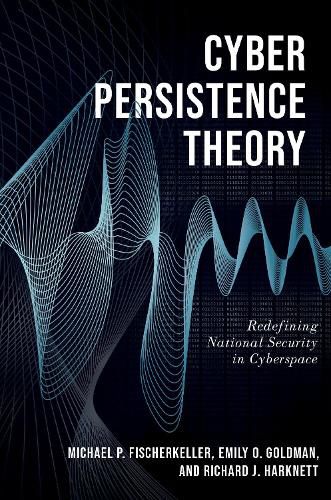Readings Newsletter
Become a Readings Member to make your shopping experience even easier.
Sign in or sign up for free!
You’re not far away from qualifying for FREE standard shipping within Australia
You’ve qualified for FREE standard shipping within Australia
The cart is loading…






A bold re-conceptualization of the fundamentals driving behavior and dynamics in cyberspace.Most cyber operations and campaigns fall short of activities that states would regard as armed conflict. In Cyber Persistence Theory, Michael P. Fischerkeller, Emily O. Goldman, and Richard J. Harknett argue that a failure to understand this strategic competitive space has led many states to misapply the logic and strategies of coercion and conflict to this environment and, thus, suffer strategic loss as a result. The authors show how the paradigm of deterrence theory can neither explain nor manage the preponderance of state cyber activity. They present a new theory that illuminates the exploitive, rather than coercive, dynamics of cyber competition and an analytical framework that can serve as the basis for new strategies of persistence. Drawing on their policy experience, they offer a new set of prescriptions to guide policymakers toward a more stable, secure cyberspace.
$9.00 standard shipping within Australia
FREE standard shipping within Australia for orders over $100.00
Express & International shipping calculated at checkout
A bold re-conceptualization of the fundamentals driving behavior and dynamics in cyberspace.Most cyber operations and campaigns fall short of activities that states would regard as armed conflict. In Cyber Persistence Theory, Michael P. Fischerkeller, Emily O. Goldman, and Richard J. Harknett argue that a failure to understand this strategic competitive space has led many states to misapply the logic and strategies of coercion and conflict to this environment and, thus, suffer strategic loss as a result. The authors show how the paradigm of deterrence theory can neither explain nor manage the preponderance of state cyber activity. They present a new theory that illuminates the exploitive, rather than coercive, dynamics of cyber competition and an analytical framework that can serve as the basis for new strategies of persistence. Drawing on their policy experience, they offer a new set of prescriptions to guide policymakers toward a more stable, secure cyberspace.